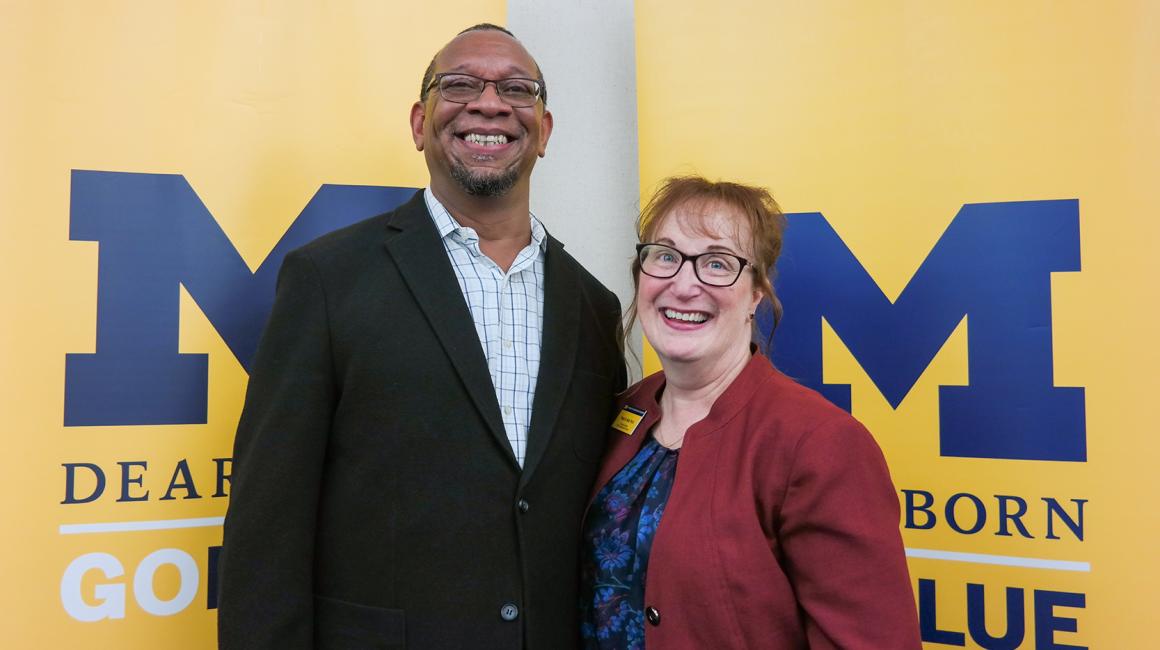
Food access and food justice have been the themes of DeWayne Wells’ professional life longer than such terms have been common in the movement lexicon. The resulting CV is long and broad — marked by impactful tenures at several of the most iconic nonprofit organizations in Detroit. But in his remarks accepting this year’s Daniel Little Metropolitan Vision Award during the university’s fifth annual Engagement Day, he joked that he was relieved it wasn’t a ‘lifetime achievement award.’
“As you get older, sometimes when you get an award, it’s your signal to move on,” Wells said to laughter. “But I see this as an acknowledgement of not only what has been but what is to come. There’s certainly more work to do, and I have more energy and ideas and commitment to give.”
Indeed, the relatively new UM-Dearborn honor, which is being awarded for the second year in 2019, uniquely recognizes a community leader with both a long body of work promoting social justice in the region and a commitment to future social progress.
In that, Wells is an obvious choice. After following his love of math into the accounting field, where he worked for a decade, Wells pivoted toward community nonprofit work. The subsequent two decades were marked by numerous achievements. The lifelong Detroiter served as president of Gleaners Community Food Bank from 2008 to 2013, where he led the organization to its highest levels of emergency food distribution. He then went on to head up the Detroit Food and Fitness Collaborative from 2013 to 2017, where he coordinated initiatives supporting improved food access in Detroit and more equitable policies around agriculture and nutrition. He has also held senior management positions at the Capuchin Soup Kitchen and Starfish Family Services.
Notably, as the Office of Metropolitan Impact Executive Director Tracy Hall mentioned in presenting the award, Wells also helped support the launch of UM-Dearborn’s own student food pantry.
“I’ll never forget writing an email on a Saturday morning to my friend and colleague DeWayne Wells, then the president of Gleaners Food Bank, asking if he could advise us on how to establish a food pantry on campus,” Hall told the audience. “Less than 24 hours later, on a Sunday, I received a terrifically positive and encouraging response. The rest is history, as they say.”
Today, Wells is leveraging his experience to tackle an even broader set of challenges. In early 2018, he took over as executive director of the Economic Justice Alliance of Michigan — a network of grassroots organizations committed to building power in under-resourced communities and advancing economic justice and racial equity across Michigan.
“Many of our issues are increasingly connected, so the work has to be as well,” Wells said. “Inequality, health, food access — any number of issues — will have, at the core, solutions that involve empowering people and getting them the resources they need to lead healthy, meaningful lives.”



